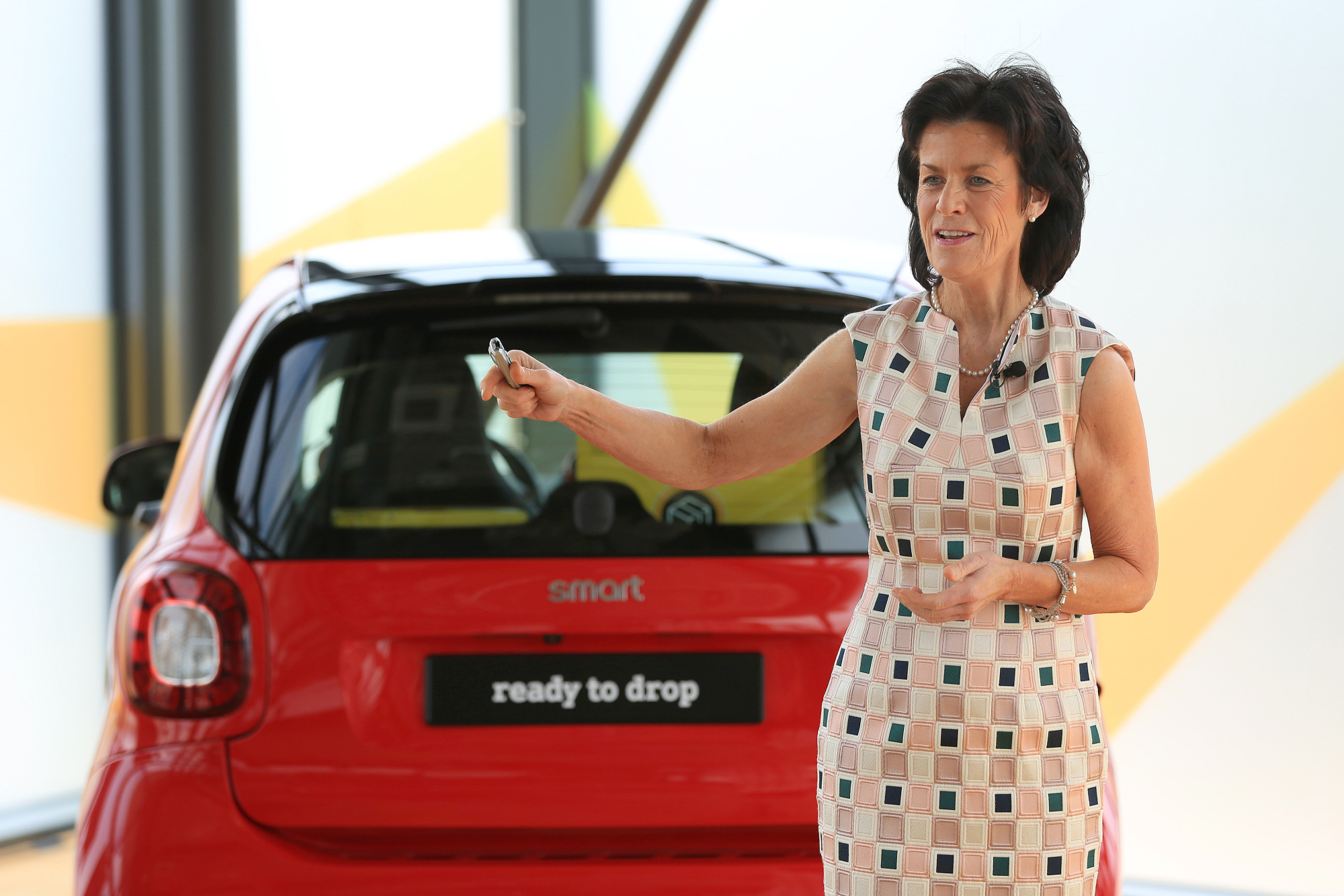Daimler AG is changing top management at the maker of the tiny Smart car, part of the latest plan to overhaul a brand that’s always been an awkward fit for the world’s largest maker of luxury vehicles.
Prompted by a strategic shift to electric vehicles, Annette Winkler will step down at the end of September after running Smart for eight years, the Stuttgart, Germany-based manufacturer of Mercedes-Benz vehicles
said Tuesday. Her replacement will be named later.

Annette Winkler
Photographer: Krisztian Bocsi/Bloomberg
Started two decades ago as a bold bet that urban consumers would buy a car mainly for its parking convenience, Smart has racked up about 4 billion euros ($4.6 billion) in losses, Bankhaus Metzler estimates. To find a new raison d’etre, the maker of the squat ForTwo is now being transformed into an urban version of
Tesla Inc., abandoning combustion engines for electric models starting in 2020.
“Smart has never become a hit,” said Juergen Pieper, a Frankfurt-based analyst with Metzler, who estimates the current annual losses at about 200 million euros. “Becoming one of the first really electric brands makes some sense.”
Expansion Struggles
While Smart offered Daimler the chance to attract a younger, urban clientele and the car has become a common sight on the streets of Berlin, Paris and Rome, the brand has struggled to expand beyond the tiny two-seater, originally launched in 1998. Efforts to add a roadster in 2003 and an ill-fitting compact in 2004 fell flat.
The mainstay model was redesigned in 2014 to give it more of a car-like snout to match a new four-seater — the aptly named ForFour, a joint production with
Renault SA. But that reset hasn’t led to lasting demand. Deliveries last year slumped 6 percent to 136,000 vehicles. Daimler doesn’t release financial details for Smart, which is part of the Mercedes-Benz Cars division.
Smart’s main contribution to Daimler has been to help offset the emissions of high-margin gas guzzlers like the Mercedes S-Class sedan and AMG GT sports car. The 107,000-euro G-Class offroader produces nearly three times the carbon dioxide as the Smart ForTwo, meaning sales of the petite model provide an important contribution to meeting rules on fleet-wide emissions.
Having a brand like Smart also gives Daimler room to experiment, with quirky services like using your car as a drop-off point for package deliveries and sharing cars via smartphone.
“You can take more risk if the name on the car is Smart rather than Mercedes,” said Daniel Schwarz, an analyst for Credit Suisse in Frankfurt.
